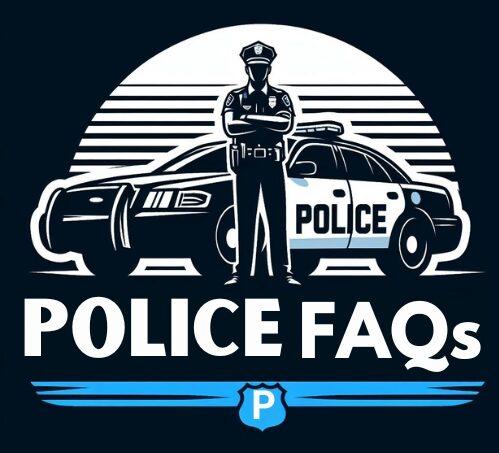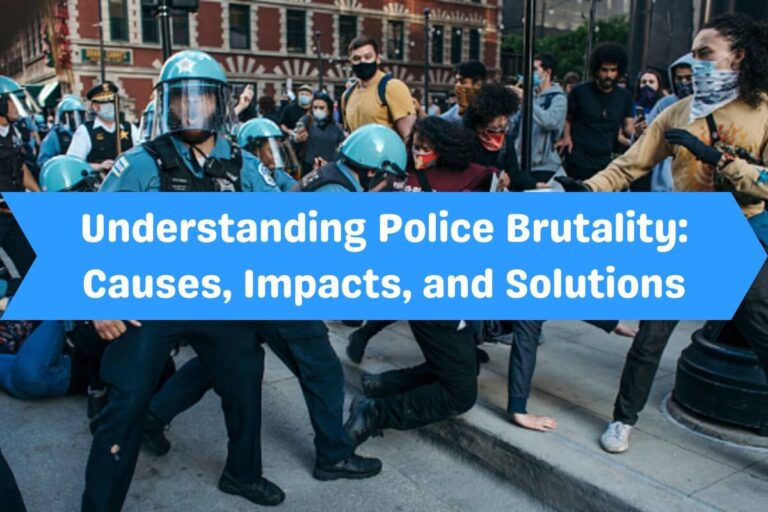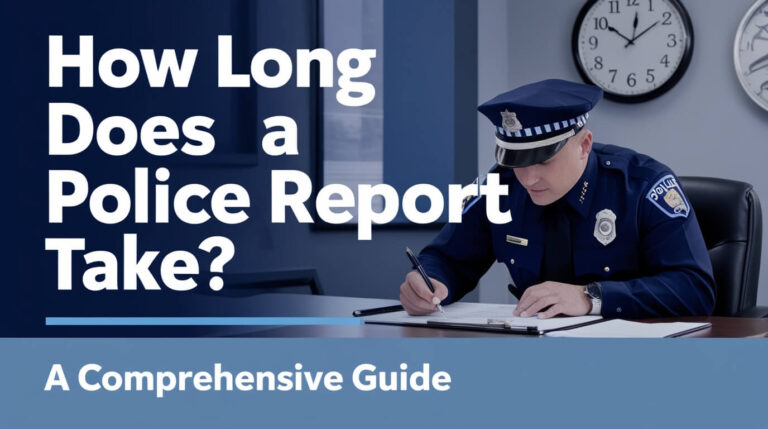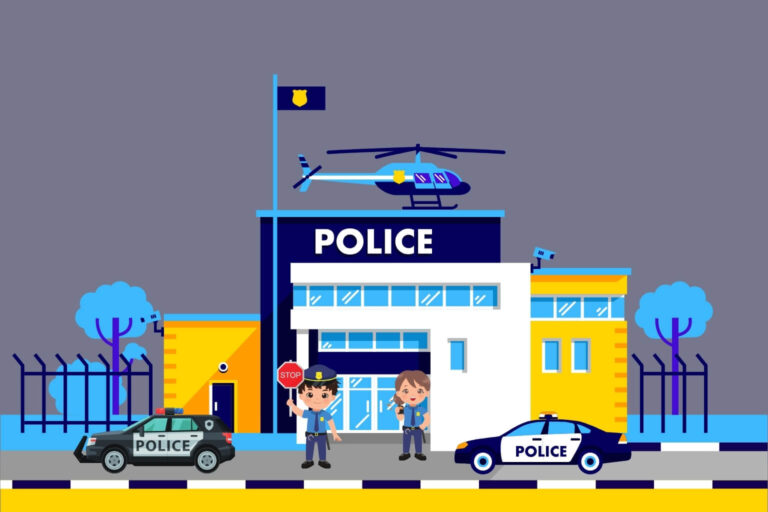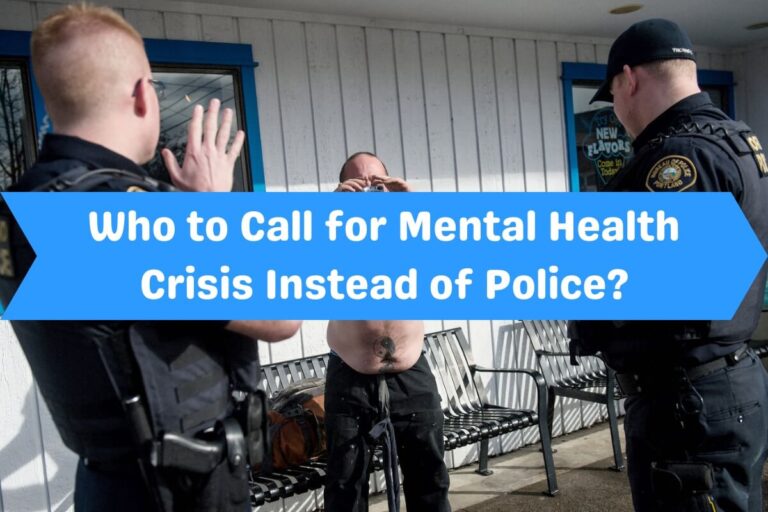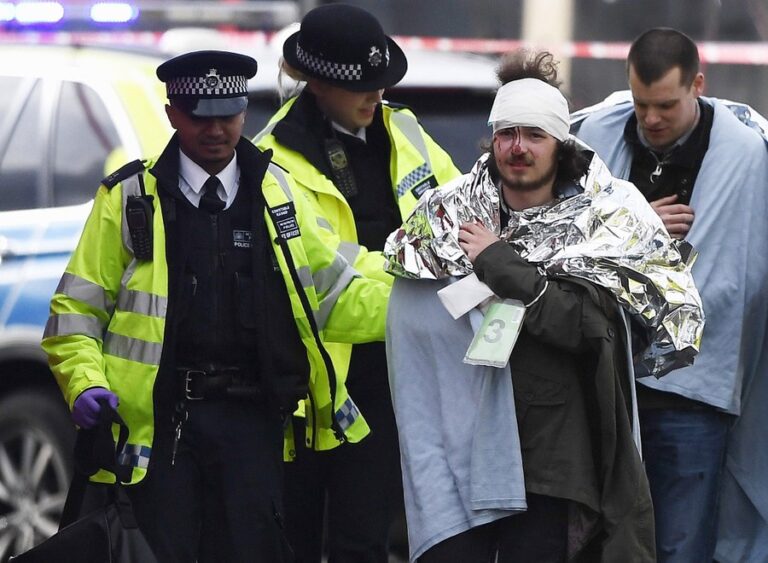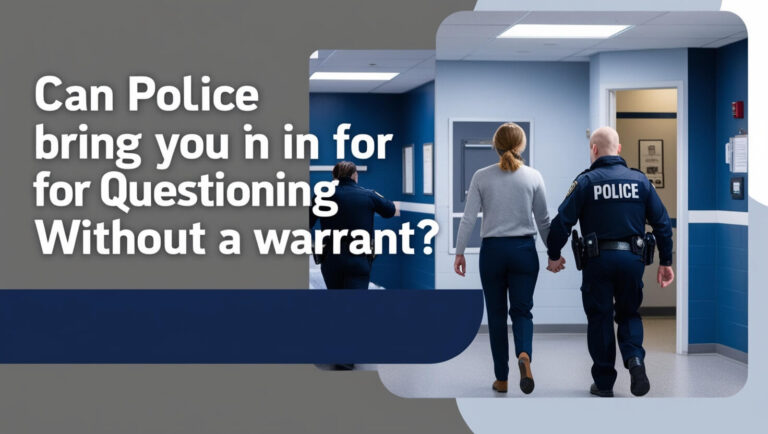Do You Need a Degree to Be a Police Officer? [Full Guide]
![Do You Need a Degree to Be a Police Officer? [Full Guide] 1 Do You Need a Degree to Be a Police Officer](https://policefaqs.com/wp-content/uploads/2024/07/do-you-need-a-degree-to-be-a-police-officer.jpg)
While a college degree is not always required to become a police officer, it can significantly boost your chances of getting hired and advancing in your career. Many departments now prefer or require some college education, but exact requirements vary widely across the country.
Let’s explore the world of law enforcement education and uncover what it really takes to wear the badge.
The Path to Becoming a Police Officer
Gone are the days when a high school diploma and a clean record were all you needed to join the force. Today’s police officers face complex challenges that often demand higher levels of education and training.
The Changing Landscape of Law Enforcement Education
Police work has evolved. Officers now deal with intricate social issues, advanced technology, and diverse communities. This shift has led many departments to raise their educational standards.
Why This Question Matters for Aspiring Officers
If you’re dreaming of a career in law enforcement, knowing the educational requirements is crucial. It can shape your career path and determine where you can work.
Basic Requirements for Becoming a Police Officer
Before we dive into education, let’s cover the basic must-haves for aspiring officers.
Age and Citizenship Requirements
Most departments require officers to be at least 21 years old and U.S. citizens. Some agencies might hire at 18, but it’s less common.
Physical Fitness and Health Standards
Police work is demanding. You’ll need to pass physical tests that assess strength, agility, and endurance. Good overall health is a must.
Background Check and Character Assessment
A clean criminal record is essential. Departments will dig deep into your past, looking for any red flags that might disqualify you.
Educational Requirements: Varying Across Departments
Now, let’s tackle the big question: do you need a degree to be a police officer?
High School Diploma or GED: The Minimum Standard
At the very least, you’ll need a high school diploma or equivalent. This is the bare minimum for most departments.
College Credits: A Growing Trend
Many agencies now require some college credits, even if it’s not a full degree. It shows a commitment to learning and personal growth.
Associate’s Degree: Balancing Education and Experience
A two-year degree can be a sweet spot for many departments. It provides educational background without the time commitment of a bachelor’s degree.
Bachelor’s Degree: Opening Doors to Advanced Opportunities
While not always required, a four-year degree can set you apart from other candidates. It’s often necessary for federal law enforcement and leadership roles.
The Debate: Degree vs. No Degree in Policing
The law enforcement community is divided on whether a college degree should be mandatory for officers.
Arguments for Requiring a College Degree
Supporters say college-educated officers are better equipped to handle complex situations. They argue that higher education leads to:
- Improved critical thinking skills
- Better communication abilities
- Enhanced understanding of social issues
Arguments Against Mandatory Higher Education
Critics worry that degree requirements might:
- Exclude good candidates who can’t afford college
- Reduce diversity in police forces
- Undervalue practical experience and street smarts
Alternative Paths to Becoming a Police Officer
Don’t have a degree? Don’t worry. There are other ways to make yourself an attractive candidate.
Military Experience: A Valuable Asset
Many departments value military service highly. It often counts as equivalent to some college credits.
Work Experience: Building Relevant Skills
Jobs that involve public service, conflict resolution, or high-stress situations can be great preparation for police work.
Police Cadet Programs: Early Exposure to Law Enforcement
Some departments offer cadet programs for young adults. These can be a foot in the door and provide valuable experience.
The Impact of Education on Police Performance
Research suggests that education can make a difference in how officers perform their duties.
Studies on Officer Effectiveness and Education Level
Several studies have found that college-educated officers tend to:
- Use force less often
- Receive fewer citizen complaints
- Adapt better to organizational changes
Critical Thinking and Problem-Solving Skills
Higher education often hones these crucial skills, which are invaluable in law enforcement.
Communication and Community Relations
College can improve verbal and written communication skills, helping officers interact more effectively with the public.
Educational Requirements by Department Size
Requirements can vary dramatically depending on the size and location of the department.
Large Metropolitan Police Departments
Big city departments often have stricter educational requirements. Many require at least some college credits or a full degree.
State Police and Highway Patrol
State-level agencies frequently require more education than local departments. A bachelor’s degree is common for these roles.
Small Town and Rural Police Agencies
Smaller departments may be more flexible, often accepting high school graduates with strong character and work experience.
Federal Law Enforcement Agencies
Agencies like the FBI typically require a bachelor’s degree at minimum. Some specialized roles may demand even higher education.
Career Advancement: How a Degree Can Help
While you might not need a degree to start, it can be crucial for moving up the ranks.
Promotions and Specialized Positions
Many departments require degrees for promotions to sergeant, lieutenant, or higher ranks.
Leadership and Management Roles
Upper management positions often demand advanced degrees in criminal justice or public administration.
Transition to Other Criminal Justice Careers
A degree opens doors to related fields like forensics, cybercrime investigation, or criminal psychology.
Types of Degrees Beneficial for Police Officers
If you decide to pursue higher education, certain degrees are particularly valuable in law enforcement.
Criminal Justice Degrees
These programs provide a solid foundation in law, police procedures, and the criminal justice system.
Law Enforcement Studies
Some colleges offer specialized programs focusing on practical skills for police work.
Sociology and Psychology
Understanding human behavior and social dynamics can be incredibly useful for officers.
Other Relevant Fields of Study
Degrees in areas like computer science, foreign languages, or accounting can be assets for specialized police roles.
Financial Considerations: Education Costs vs. Career Benefits
Deciding to pursue a degree is a big financial decision. Let’s break down the costs and potential benefits.
Tuition Assistance Programs for Officers
Many departments offer tuition reimbursement or assistance for officers pursuing higher education.
Salary Differences Based on Education Level
Officers with degrees often earn higher salaries and may be eligible for special pay incentives.
Long-Term Career Investment
While the upfront costs can be high, a degree can pay off over the course of your career through promotions and opportunities.
The Future of Police Education Requirements
The trend seems to be moving towards higher educational standards for officers.
Trends in Law Enforcement Standards
More departments are raising their minimum educational requirements each year.
Evolving Public Expectations of Police Officers
Communities are increasingly calling for officers who are well-educated and culturally competent.
Technological Advancements and Specialized Knowledge
As policing becomes more high-tech, officers with relevant educational backgrounds will be in high demand.
How to Decide If You Should Pursue a Degree
Choosing whether to get a degree is a personal decision. Here’s how to approach it.
Assessing Your Career Goals
Think about where you want to be in 5, 10, or 20 years. Will a degree help you get there?
Researching Requirements in Your Desired Location
Look into the standards for departments where you’d like to work. They might influence your decision.
Balancing Work, Education, and Personal Life
Consider online or part-time programs if you’re already working or have family commitments.
Alternatives to Traditional College Degrees
A four-year degree isn’t the only way to further your education for a police career.
Police Academy Training
Academy training is mandatory for all officers and provides essential skills and knowledge.
Vocational Law Enforcement Programs
Some technical schools offer focused law enforcement programs that can be completed more quickly than a traditional degree.
Online Education Options for Aspiring Officers
Many accredited online programs cater specifically to working adults in law enforcement.
Conclusion: Weighing Your Options in Law Enforcement Education
So, do you need a degree to be a police officer? The answer isn’t a simple yes or no. While it’s possible to join some forces without a degree, having one can certainly give you an edge.
The Importance of Continuous Learning in Policing
Whether you choose to pursue a degree or not, never stop learning. The best officers are those who constantly seek to improve their skills and knowledge.
Making an Informed Decision About Your Career Path
Consider your goals, research your options, and choose the path that best fits your aspirations in law enforcement. Remember, there’s no one-size-fits-all approach to becoming a great police officer.
Whichever path you choose, dedication, integrity, and a commitment to serving your community will be key to your success in law enforcement. Stay informed, stay prepared, and stay committed to making a positive difference in the world of policing. Co
